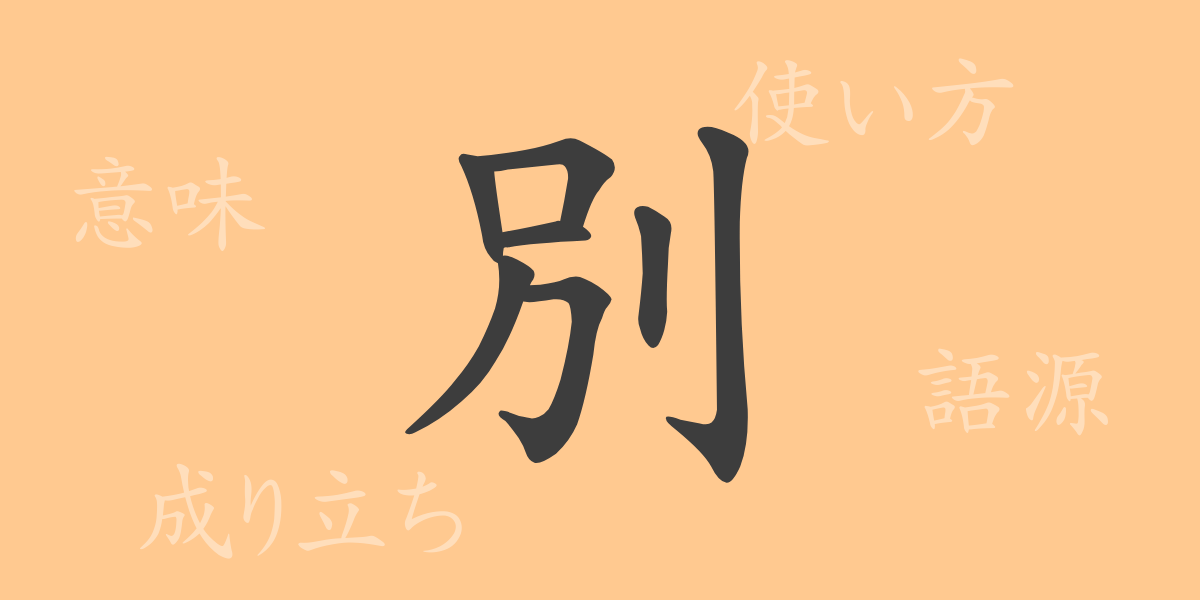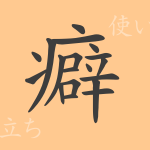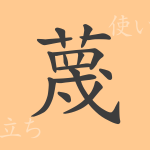The beauty of the Japanese language is also found in its characters. One of the commonly used kanji (characters) is “別 (べつ, Betsu),” an important character frequently used in our daily lives. In this article, we will explore the origins, meanings, usage, readings, and related idioms and phrases of “別 (べつ, Betsu).” A deep understanding of the Japanese language requires comprehension of each kanji. Let’s delve into the world of “別 (べつ, Betsu).”
The Origin (語源, Gogen) of 別 (べつ, Betsu)
The kanji “別 (べつ, Betsu)” symbolizes the act of separating objects with a knife in ancient China. The left side “刂 (りっとう, Rittou)” represents a knife, while the right side “卩 (せつ, Setsu)” depicts a person kneeling, originally implying “to cut apart.” Over time, it came to mean “to separate” or “to distinguish,” and it is used in modern Japanese to express similar concepts.
Meaning and Usage of 別 (べつ, Betsu)
“別 (べつ, Betsu)” carries meanings such as “to separate,” “to distinguish,” and “to part.” Specific usages include the sorrow of “別れる (わかれる, Wakareru)” (to part ways) or indicating an alternative option as in “別の (べつの, Betsu no)” (another). In business contexts, it is used in terms like “特別 (とくべつ, Tokubetsu)” (special) and “別途 (べっと, Betto)” (separately), adding specific conditions or additional meanings.
Readings, Stroke Count, and Radical of 別 (べつ, Betsu)
The kanji “別 (べつ, Betsu)” has various readings in Japanese.
- Readings: In on-yomi (音読み, On-yomi), it is read as “ベツ (べつ, Betsu),” and in kun-yomi (訓読み, Kun-yomi), it is read as “わかれる (Wakareru)” or “わける (Wakeru),” among others.
- Stroke count: It has a total of 7 strokes.
- Radical: The radical is “刀 (りっとう, Rittou)” (knife).
Idioms, Proverbs, and Phrases Using 別 (べつ, Betsu)
There are numerous idioms, proverbs, and phrases containing “別 (べつ, Betsu).” For instance, “別天地 (べってんち, Bettenchi)” means a completely different world, and “別荘 (べっそう, Bessou)” refers to a private house used during vacations. “別々に (べつべつに, Betsu-betsu ni)” is used when considering things separately, and “別れを告げる (わかれをつげる, Wakare o tsugeru)” is used to declare the end of a relationship. These expressions demonstrate the richness of the Japanese language.
Conclusion on 別 (べつ, Betsu)
Understanding the meanings and history embedded in a single kanji is key to a deeper comprehension of the language. “別 (べつ, Betsu)” is a frequently used kanji in daily life, and its usage and idioms are essential elements of our communication. We hope this article has helped you appreciate the multifaceted nature and charm of “別 (べつ, Betsu).”

























